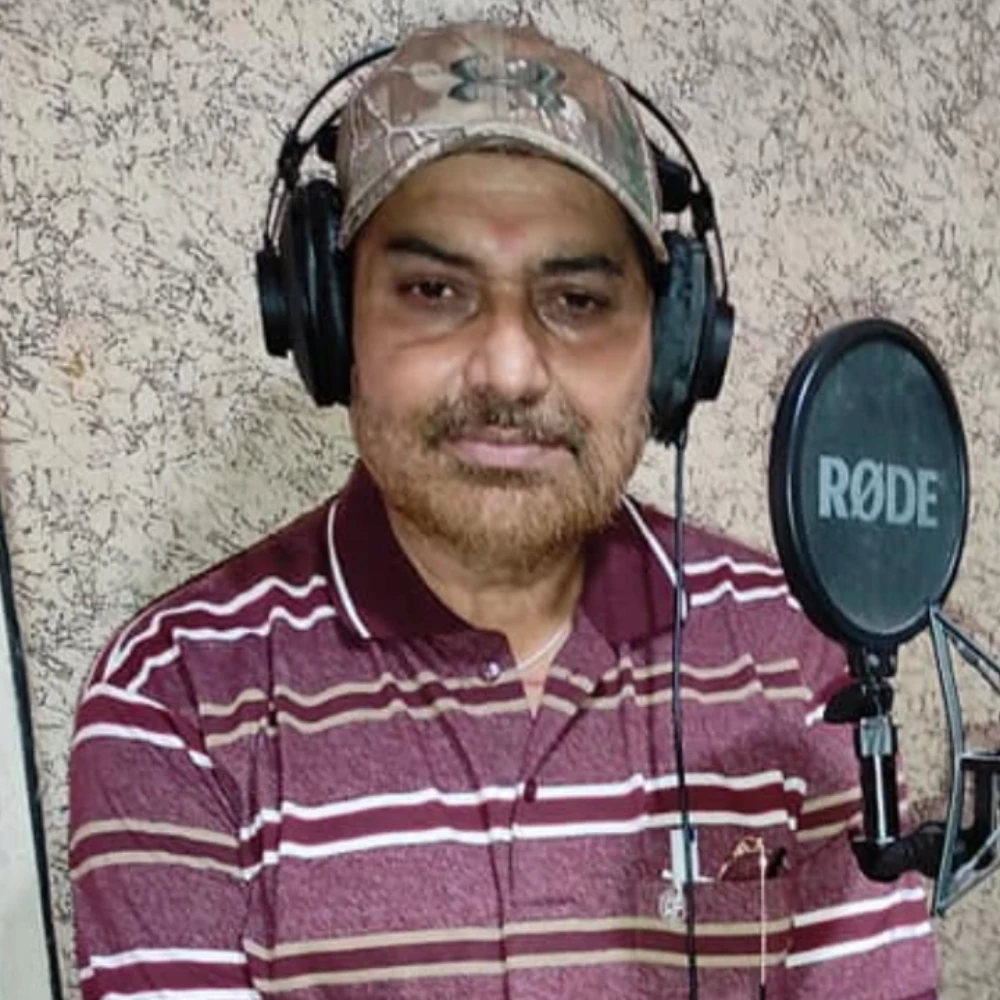The Serious Side Effects of Starving–When Your Organs Shut Down
The serious side effects of starving often show in symptoms like bone density, diarrhea, chronic fatigue, and dehydration. Learn more about starvation here.

Starvation is the result of a severe calorie intake deficit, whether due to dire circumstances or choice. According to Trish Gomez, a Registered and Licensed Dietitian and a Certified Personal Trainer, “The amount of deficit can be termed as starvation when a person is getting less than 50% of their nutritional needs.” Extreme starvation and the serious side effects of starving can ultimately cause death. While global starvation is a sign that poverty is an undeniable reality, many people across the world are starving themselves on purpose to lose weight.
While intermittent fasting has proven to serve many benefits to practitioners, starvation diets can do more harm than good. Several theories suggest that fasting offers physiological benefits and a popular hypothesis sheds light on the fasting period (1). As cells are under mild stress, they adapt to respond accordingly. The cells’ coping mechanism is enhanced to tackle stress and maybe even resist disease.
What Does Starvation Look Like?
A starvation diet or starving yourself completely may look different to meticulously planned fasting, and may also be irresponsible and detrimental to your health. There may be no pattern to the starvation diet nor would it be a healthy choice. To lose weight, some people simply stop eating. Some even force themselves to throw up after consuming a meal in order to stay skinny. People who are starving look malnourished, lethargic, and almost as though they are unable to perform basic tasks promptly.
Our contributor Dr. Kevin Huffman, a board-certified bariatric physician as well as the Founder of Ambari Nutrition, says, “If someone is forcefully inducing vomiting, it could be a sign of a serious health issue like bulimia nervosa. This behavior can cause significant physical and psychological harm, including problems with electrolyte balances, dental issues, and damage to the esophagus and digestive system. It's important for individuals engaging in this behavior to seek help from a health care provider.”
When the body doesn’t get the nutrients it needs to sustain and stay healthy, our vital organs like the heart, lungs, ovaries, and even our tissues take a direct hit. Body temperature drops significantly, muscles shrink, and the body becomes weak. Months of staying malnourished and starving may lead to serious health conditions like anemia or beriberi. When starvation is a choice, it's time to give our mental health a boost and listen to why our bodies feel this way. Trish Gomez further says, “An individual practicing starvation diets should visit a therapist when they suffer from anorexia nervosa or ARFID, who works with a therapist who specializes in eating disorders. An individual who uses severe caloric restriction as a short term weight loss plan would benefit from education from a registered / licensed dietitian.”
Unlike straight-out starving yourself, intermittent fasting has rules. Intermittent fasts last anywhere between 12 to 40 hours. While drinks like water, coffee, and tea are allowed during the fast, any other type of food is not, not even a slice of fruit. Time-restricted diets allow one to fast for a certain number of hours and also create a window to eat. Another popular intermittent fasting diet involves the participant not eating for an entire 24 hours.
At the same time, we must exercise sensitivity towards those who exhibit such extreme eating disorders. It may be signs of underlying mental health issues, and should be addressed as soon as possible.
Learning About the Serious Side Effects of Starving
1. Diarrhea
One of the most common signs of starvation is diarrhea. Reports and accounts published of the starving victims of the second world war and the Nazi regime showed that diarrhea was a common consequence of starvation in both adults and children (2). In children in whom it could be measured using gastric aspiration, a technique used to collect gastric contents to diagnose TB by microscopy and mycobacterial culture, there was no acid found.
But, on the other hand, reports of intestinal atrophy, the condition in which the long tentacle-like structure that lines the walls of the small intestine erodes, and edema, a swelling caused by excess fluid trapped in the body’s tissues were found in 27% cases, which was later described as pseudo dysentery. A leading cause of diarrhea caused by starvation seems to be attributed to an organ-specific malnutrition of the intestinal epithelium, which is a tissue that forms on the covering of all internal and external surfaces of the body. The intestine is overworked to feed on whatever nutrients it can latch onto and can’t salvage ions because the epithelium doesn’t have enough energy to control absorption.
2. Severely Affected Metabolism
Long periods of starvation can have adverse effects on the body’s capacity to absorb nutrients, in that it is not able to (3). Long-starved soldiers were fed a healthy diet to rescue them from starvation but they saw it as an unkindness. The extended routine of the low intake of water and food had harmed their digestive system so severely that they weren’t able to process or handle a rapid increase in diet, especially if it was fatty food.
The sudden influx of large volumes of food caused abdominal pain and vomiting along with diarrhea. It goes to show the side effects of not eating for long periods don’t just affect the body while starving but also when there is an attempt to fix the diet.
3. Dehydration
Eating and drinking account for a large chunk of our day as they are necessary to keep our bodies functioning like a well-oiled machine. A theory proposes that fluid intake is regulated by food intake, so much so that 75% of water intake depends on the time we consume our meals throughout the day (4). Most foods we eat contain water and also generate water through our metabolic process (5). Drinking certain beverages provides the body energy for sustenance, which is also an expectation of the foods we eat.
It has now become common knowledge that humans can only survive a few days without water. Water makes up 75% of body weight in infants and 55% in adults and is crucial for life sustenance (6). For the body to function properly, it needs to maintain a healthy balance between the water and mineral quotient. So, without a healthy diet, the body doesn’t get the required amount of fluids which may cause dehydration.
4. Hair Loss
One of the telling signs of starvation is hair fall. While there are many reasons why people face hair loss or hair fall issues, one of them is due to starvation and not providing the body with the proteins, minerals, and supplements it needs to function properly. On the other hand, stuffing oneself with supplements may also prove counterproductive. Studies show a direct correlation between nutritional factors, or the lack of, and persistent and increased hair shedding (7). Reduced iron and essential amino acids can immediately cause hair damage problems.
Another study suggests that nutritional deficiency may affect both hair structure and hair growth negatively (8). Telogen effluvium, a common type of hair loss, affects those following a sudden drop in body weight or decreased protein levels in the body. A niacin (a nutrient in the vitamin B complex) deficiency has also been shown to cause hair fall.
5. Fatigue
Fatigue can begin even with skipping breakfast if our body is used to a wholesome meal to start our day. Now, imagine skipping meals throughout the day or days. You’re suddenly feeling tired, dizzy, fatigued, and as though you can’t lift a finger. To avoid spells of dizziness and fatigue, it is important to maintain a daily calorie intake.
The daily recommended calorie intake for males is 2600-2800 kcal and 2000-2200 kcal for females (9). Failing to stick to these numbers affects the physical condition of the body. An imbalance in diet, whether one is overeating or undereating, and in this case, the latter, can be detrimental to the body. Without enough food and fluids in your body, the volume of blood decreases, which then lowers your blood pressure. This keeps a starved person’s brain from getting the required supply of blood causing lightheadedness and fatigue.
6. Loss of Bone Density
Drawing from the same examples of the harsh living conditions endured by prisoners and inhabitants during the second world war, the calorie intake was restricted to 800 calories a day. Sometimes, less than 200. What followed was a severely increased risk of fractures and poor bone mineral density (10). Caused mostly by a poor diet and the body’s inability to regulate calcium or severe lack of calcium intake, low bone density is typically characterized by consistent back pain, a stooped posture and loss of height over time, and bones that break quite easily.
Problems such as these often lead to other bone-related problems like osteoporosis, a condition where low bone density causes the holes inside the bones to become wider and makes the outer walls of the bones thinner and more fragile.
7. Anorexia Nervosa
Commonly referred to as anorexia, it is an eating disorder characterized by an irrational fear of being overweight. People suffering from anorexia have a distorted sense of their body image and often obsess over how much or how little they eat. Anorexia is one of the more common diseases examined in light of starvation. It is a psychiatric disorder that affects more females than males and is marked by self-induced restricted calorie intake (11). Anorexic patients may also have compulsive eating rituals which may seem quite bizarre and they may also distort self-perception.
Other possible physiological consequences of anorexia show classic symptoms of starvation like weight loss and muscle wasting. A lack of estrogen, calcium, and vitamin D deficiencies causes eating disorders like anorexia, bulimia (a disorder in which the patient binge eats and subsequently vomits), and anorexia is also considered to be a reason for osteoporosis in the young (12).
8. Changes in the Brain
Studies show that when volunteers were deprived of healthy meals and chose to starve themselves for the sake experiment, they saw changes in the brain as early as three days (13). The experiment showed a decrease in glucose metabolism, considered the most efficient form of energy transfer, in the brain and confirmed that the brain adapts to changes in energy supply in a matter of a few days.
Glucose metabolism enables physiological brain function by generating adenosine triphosphate (ATP) (14). ATP then provides energy that is instantly usable by all body cells. Therefore, glucose metabolism regulation is necessary for critical brain functions and a disturbed glucose metabolism can be the cause of several diseases affecting both the brain and the body.
9. Impaired Cognitive Abilities
Studies have shown that those who develop anorexia typically have above-average intelligence quotients but during its active phase, 50% of participants with anorexia were found to have mild cognitive impairment on two or more neuropsychological tasks (15). One-third of the participants even failed two or more tasks. The study showed that the right dorsal ACC volume was significantly reduced in anorexic patients and was correlated with lower IQ performance. The dorsal ACC or anterior cingulate cortex is a region in the brain that helps cognition and motor control.
While these tests were run on anorexic patients and other impairments were also found in the course of the study in areas like verbal and visual memory and attention skills, it provides a window to how a starving person, especially by choice, can directly affect cognitive processes.
10. Digestive Problems
Starving for weight loss, not eating meals at regular intervals, and running on a severe calorie deficit for extended periods can lead to many gastrointestinal problems. Studies suggest that starvation can lead to intestinal atrophy (16), which is when the microscopic, tube-like tentacles that line the walls of your small intestine wear away causing a flat surface. This may further lead to other problems like malabsorption of sugars and a decrease in intestinal mucosal mass.
11. Malnutrition
Malnutrition can fall on both sides of the spectrum. On one hand, malnutrition is characterized by malnourishment, extreme hunger, starvation–forced or voluntary, and a critical case of micronutrient deficiencies. On the other hand, malnutrition is also being overweight and obesity. In the former case, starvation leads to malnutrition as the body does not receive the required amount of proteins, minerals, and vitamins to function properly.
Losing weight by starving or starvation causes the fat reserves to become completely depleted and the body uses the last dregs of protein as fuel to function. Malnutrition side effects and starvation can not only impair the digestive system but also impair overall health. Children of a growing age faced with malnutrition often grow up stunted and with other health problems.
12. Depression
While there are many possible causes and reasons for a person to become depressed, there is growing evidence to support the claims of how food and nutrition also play a role in a person’s mood and temperament. Undernutrition, starvation, and malnutrition can cause excessive weight loss which may change the very makeup of our brain chemistry and result in symptoms of depression and anxiety. According to a study following the effects of calorie restriction on participants, it showed benefits for both the mind and the body (17). A calorie restriction (CR) is a reduction of calorie intake by 30-40% while maintaining the required levels of vitamins, minerals, and water needed for proper functioning.
After six months of CR, significant changes were seen in terms of physiological alterations such as fat distribution, body temperature, a reduced risk of cardiovascular diseases, and an enhancement in mood and cognitive functions. While this example shows a restriction in diet to achieve desired results, it goes to show that a balanced diet can also help fight mental illnesses.
13. Organ Failure (18)
Malnutrition caused by starvation or other problems shows itself first in a significant drop in weight. Some of the most obvious signs are weight loss due to depleted fat and muscle mass and even organ mass. Muscle functions are affected negatively before there are changes in muscle mass, which suggests that the intake of nutrients, or the lack of them, affects muscle mass and the organs.
For instance, if you starve yourself to lose weight, starvation can affect the respiratory organs and cardiac function through micronutrient and electrolyte deficiencies. Poor respiratory muscle function reduces cough pressure and the spitting out of secretions from the respiratory tract which further delays the recovery from respiratory tract infections.
14. Low Blood Pressure
When the body is in starvation mode and deprived of the basic nutrients it needs to process properly, the body’s blood pressure begins to drop steadily. When the blood pressure drops too low, vital organs don’t get enough oxygen to function. In serious cases, long-term low blood pressure may cause the heart to pump faster or faster as a way of compensating. In due course, it may lead to problems like permanent heart damage, clots, and strokes.
15. Constipation
Another surprising side effect of starvation is constipation. When the body is grappling with restrictive eating patterns, it sounds the alarm for a calorie deficit. The body then slows down the digestive process to extract as many calories as possible, which then, often leads to constipation.
But, starvation doesn’t have to be the answer if you want to lose weight or attain a body that you’re proud of. It must start with a healthy mind and a healthy body. Here’s how you can start eating better, one meal at a time.
Healthy Eating and Living
According to the National Heart, Blood, And Lung Institute, a healthy lifestyle must include:
- A generous dose of fruits, vegetables, and legumes
- Fat-free or low-fat dairy products
- For those who partake, lean meats, poultry, fish, and eggs
- Limited sugars
- Beans and nuts
Most importantly, people must control and monitor their portion sizes and eat only as much as is required for the day.
Here’s a quick meal chart to help you get started and eat healthy meals throughout the week:
Breakfast:
- Monday: Omelet with bread
- Tuesday: Overnight Oats
- Wednesday: Pancakes
- Thursday: Fruit and Nut Yogurt Bowl
- Friday: Chia Seed Pudding
- Saturday: Fruit Bowl with boiled eggs.
- Sunday: Breakfast Burrito
Lunch:
- Monday: Creamy Fettuccine Alfredo
- Tuesday: Cheese Grilled Sandwich
- Wednesday: Chickpea and Veggies Salad
- Thursday: Noodles with Broth
- Friday: Avocado Toast
- Saturday: Chicken Pasta Salad
- Sunday: Grilled Fish
Evening:
- Monday: Sliced apples with almond butter
- Tuesday: Custard pudding with strawberries
- Wednesday: Vietnamese Spring Rolls
- Thursday: Carrot and Ginger Soup
- Friday: Stir Fried Broccoli
- Saturday: Vegetable har gow
- Sunday: Mango Yogurt Smoothie
Dinner:
- Monday: Pinto Bean Chili with Rice
- Tuesday: Burrito Bowl
- Wednesday: Minestrone Soup
- Thursday: Garlic Mushroom Pasta
- Friday: Fish Tacos
- Saturday: Spaghetti with garlic and olive oil
- Sunday: Biryani
For women, each meal should be anywhere from 500-800 calories per meal if you eat three meals a day. For men, each meal should be 650-100 per meal, if there are three meals a day.
Conclusion:
It’s no secret that we want to look and feel our best at all times. And looking our best may often come at a cost. Starving yourself to fit into that dress or those jeans isn’t the right way to approach weight loss, nor is it the healthy way. Serious side effects of starving accumulate, often culminating in fatality.
Losing weight and staying in shape may sound like a hard, hard battle but it only takes for you to start and stay on that path consistently. Eat well, exercise, push yourself as much as your body and mind will allow you to, and don’t expect immediate results. Remember that greatness always takes time.
Contributor: Dr. Kevin Huffman, Certified Bariatric Physician and Founder of Ambari Nutrition
Citations:
1. Several theories suggest that fasting offers physiological benefits and a popular hypothesis sheds light on the fasting period.
Intermittent fasting: the science of going without
https://www.ncbi.nlm.nih.gov/pmc/articles/PMC3680567/
2. Diarrhea was a common consequence of starvation in both adults and children.
Starvation and Its Effects on the Gut
https://www.ncbi.nlm.nih.gov/pmc/articles/PMC8166558/
3. Starvation can have adverse effects on the body’s capacity to observe nutrients, in that it is not able to.
Starvation and Its Effects on the Gut
https://www.ncbi.nlm.nih.gov/pmc/articles/PMC8166558/
4. 75% of water intake depends around the time we consume our meals throughout the day.
Relationships between human thirst, hunger, drinking, and feeding
https://www.ncbi.nlm.nih.gov/pmc/articles/PMC2467458/
5. Most foods we eat contain water and also generate water through our metabolic process.
Hunger and Thirst: Issues in measurement and prediction of eating and drinking
https://www.ncbi.nlm.nih.gov/pmc/articles/PMC2849909/
6. Water makes up 75% of body weight in infants and 55% in adults and is crucial for life sustenance.
Water, Hydration and Health
https://www.ncbi.nlm.nih.gov/pmc/articles/PMC2908954/
7. Studies show a direct correlation between nutritional factors, or the lack of, and persistent and increased hair shedding.
Nutritional factors and hair loss
https://pubmed.ncbi.nlm.nih.gov/12190640/
8. Another study suggests that nutritional deficiency may affect both hair structure and hair growth negatively.
Diet and hair loss: effects of nutrient deficiency and supplement use
https://www.ncbi.nlm.nih.gov/pmc/articles/PMC5315033/
9. The daily recommended calorie intake for males is 2600-2800 kcal and 2000-2200 kcal for females.
Nutrition and Hydration Requirements In Children and Adults
https://www.ncbi.nlm.nih.gov/books/NBK562207/
10. Starvation severely increases the risk of fractures and poor bone mineral density.
Evidence for the Adverse Effect of Starvation on Bone Quality: A Review of the Literature
https://www.ncbi.nlm.nih.gov/pmc/articles/PMC4355339/
11. It is a psychiatric disorder which affects more females than males and is marked by self-induced restricted calorie intake.
Evidence for the Adverse Effect of Starvation on Bone Quality: A Review of the Literature
https://www.ncbi.nlm.nih.gov/pmc/articles/PMC4355339/
12. Anorexia is also considered to be a reason for osteoporosis in the young.
Why does starvation make bones fat?
https://www.ncbi.nlm.nih.gov/pmc/articles/PMC3169094/
13. Studies show that when volunteers were deprived of healthy meals and chose to starve themselves for the sake experiment, they saw changes in the brain as early as three days.
Brain metabolism during short-term starvation in humans
https://pubmed.ncbi.nlm.nih.gov/8263048/
14. Glucose metabolism enables physiological brain function by generating adenosine triphosphate (ATP).
Sugar for the brain: the role of glucose in physiological and pathological brain function
15. 50% of participants with anorexia were found to have mild cognitive impairment on two or more neuropsychological tasks.
Implications of Starvation-Induced Change in Right Dorsal Anterior Cingulate Volume in Anorexia Nervosa
https://www.ncbi.nlm.nih.gov/pmc/articles/PMC3652574/#R13
16. Studies suggest that starvation can lead to intestinal atrophy.
Starvation and Its Effects on the Gut
https://www.ncbi.nlm.nih.gov/pmc/articles/PMC8166558/
17. According to a study following the effects of calorie restriction on participants, it showed benefits for both the mind and the body.
The Effects of Calorie Restriction in Depression and Potential Mechanisms
https://www.ncbi.nlm.nih.gov/pmc/articles/PMC4790398/
18. Organ Failure
Malnutrition: causes and consequences
https://www.ncbi.nlm.nih.gov/pmc/articles/PMC4951875/





 JOIN OUR WHATSAPP CHANNEL
JOIN OUR WHATSAPP CHANNEL















































































